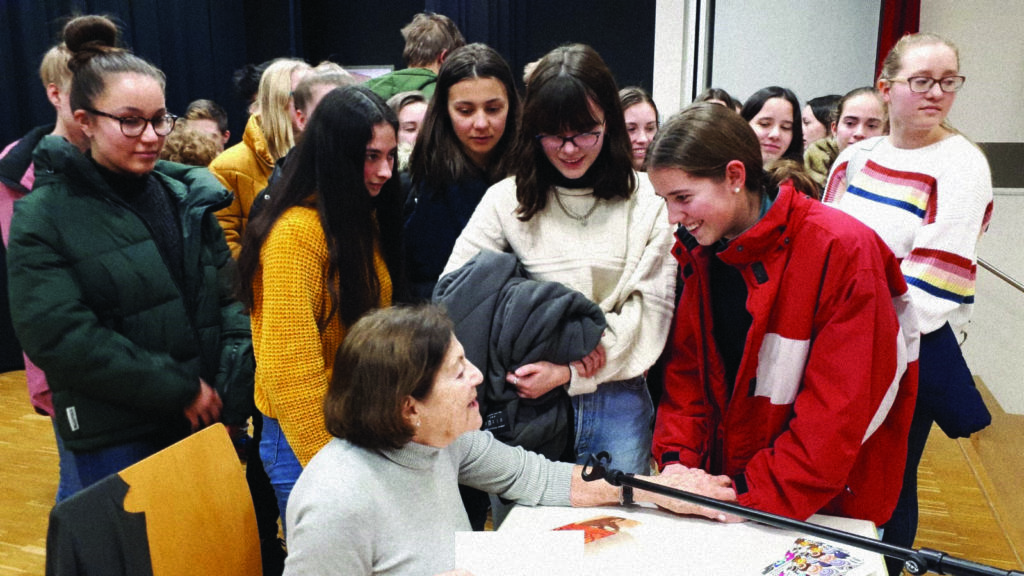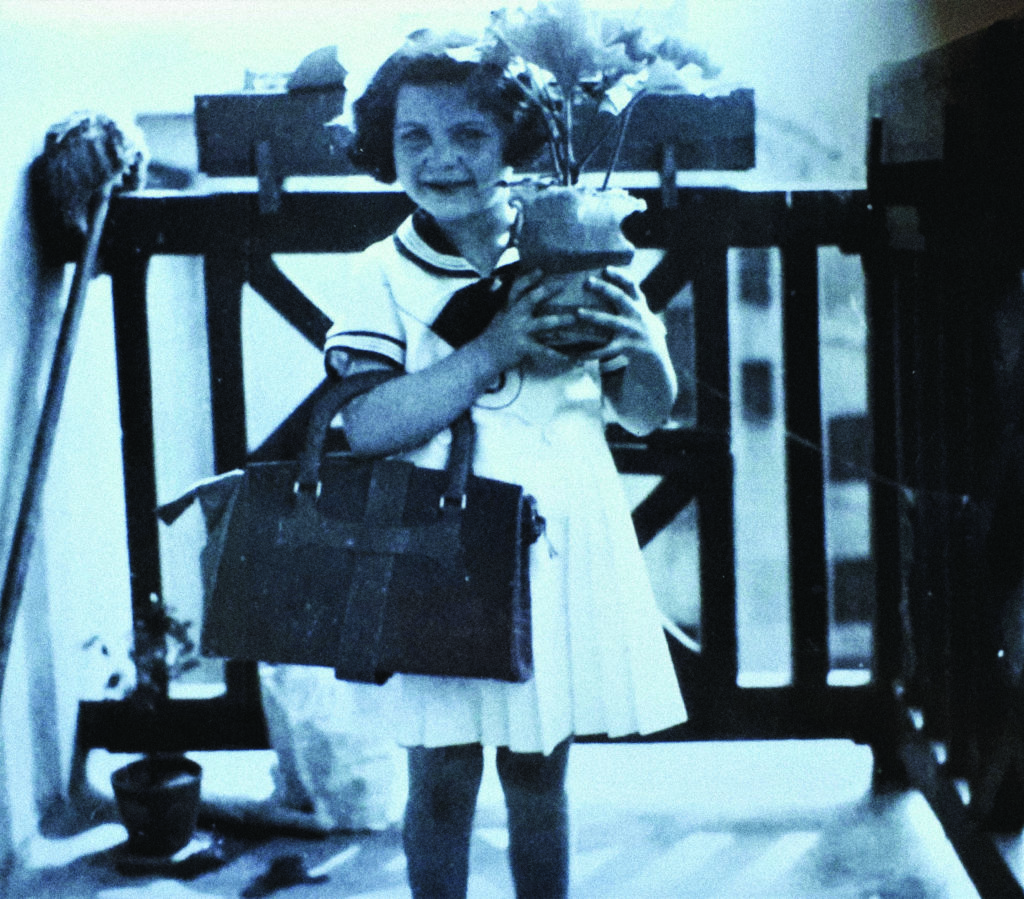
Auschwitz survivor urges German students to reject Antisemitism
Published on: 10.4.2020By: David Parsons, VP & Int. Spokesman
As the world marked the 75th anniversary of the liberation of Auschwitz, an 89-year-old survivor of the Nazi death camp, Eva Erben of Ashkelon, toured public schools in Germany, telling enraptured students her life story of suffering and endurance on the perilous journey from Terezin to Auschwitz-Birkenau, Gross Rosen and finally the Death March.

In what has become an annual tradition around the January 27 Holocaust remembrance observances, the German branch of the International Christian Embassy Jerusalem hosted a Holocaust survivor from Israel on a speaking tour in German schools and churches. But Eva Erben’s recent visit took on added significance as Germany wrestles with its rising antisemitism in the wake of the shocking terror attack at the Halle synagogue on Yom Kippur last October.
While Eva managed to survive the Shoah, she lost her parents and all of her extended family after the Wehrmacht occupied her native Czech Republic. For forty years, she did not talk about her ordeal and refused to speak in German. Now an aging matriarch with nine grandchildren and 16 great-grandchildren, she is determined to tell her story to one-and-all, driven by an urgency to combat both Holocaust denial and the resurgence of antisemitism.
At a school near Stuttgart, hundreds of students were hanging on her every word as an emotional Eva showed them faded photos of her relatives and said: “I want to make you understand that these pictures of my family before the war are pictures of a normal, happy Jewish family. This story is not just about me, but more about my generation and the generation of my parents. Why did they have to murder us, the Jewish people?”
“And now look at the world today,” she added. “Has anything changed? The Jewish people and the State of Israel is again singled out. Antisemitism is growing, like a virus spreading rapidly.” “But you are our future,” she tells the schoolchildren. “Some of you will become politicians or leaders in other areas. You can do something about antisemitism. Hatred gives only tears. Hatred is destructive and destroys humanity.” “Why did I come to Germany to share with you? You are not responsible for the Shoah, not for what your grandparents did. However, you are our future. You need to know what has happened, and that this can happen again, unless we tell the story and learn from it. I hope that you will make the right choice,” she concluded.

There is never time to tell her whole story, but Eva told the German schoolchildren mostly about the last months of the war. She and her mother were evacuated with other Jews from the Gross Rosen concentration camp and sent on one of the infamous death marches by foot in the dead of winter. Many were starving and sick, and many died along the way. This included Eva’s mother, who died in her arms.
“Eva, you need to continue,” she told her. She had always tried to give her daughter hope that life would return to normal for them one day. But now Eva was left to give one last hug and kiss to her mother, and continue on with a broken heart and very little hope or strength.
One night, Eva slipped away from the march and fell asleep in a barn tucked near a cow under some hay, seeking warmth due to the bitter cold and her thin clothing. The next day a boy woke her up and warned her that German soldiers were still around. She followed a train track and ran into a soldier who had deserted his unit and just wanted to go home. He gave her some bread and milk, but her stomach could not handle it and she almost died. Eva was down to only 25 kilos.
Later, she came across a German guard who pointed his gun at her ready to pull the trigger. But another guard quickly came and said, “Don’t waste your bullet, she will die on her own.” Shortly after, she passed out and the next thing she remembers is waking up in a barn, where a local Czech lady took her in and cared for her until the German army had withdrawn.
Eva Erben has compiled her entire life story in a book entitled “I Am Forgotten” (“Man hat mich vergessen” in German), which the ICEJ-Germany branch supplied every student who came to hear her talk. They all wait in line for Eva to sign their copies, which she eagerly does, adding a trademark “Shalom” above her signature. Everyone lets Eva know they are glad she came.
“Thank you, Mrs. Erben, for sharing your story,” one student remarked. “You are a courageous lady.”
“It touched me deeply what you have been through and your strength to live and help build up Israel,” said another. “Your story is a story of hope.”
“We have heard and read a lot about this war,” added a third student. “You share your story in such a way that I can picture it. I will never forget this and hope it will never, ever happen again.” “Eva has a burning message on her heart as antisemitism is on the increase again,” noted ICEJ staff member Jannie Tolhoek, who accompanied Eva on her speaking tour. “While she shared her story at the different schools, you could sense their rapt silence. No one wanted to miss a single word. We believe it will make a difference in Germany’s future.”